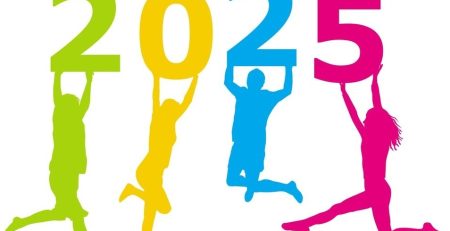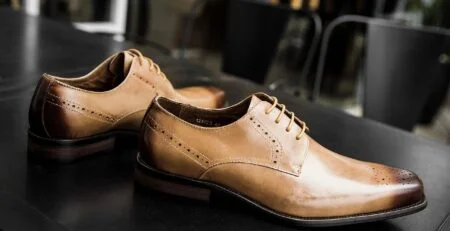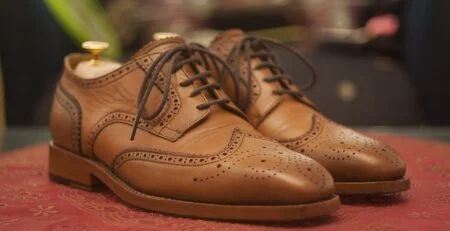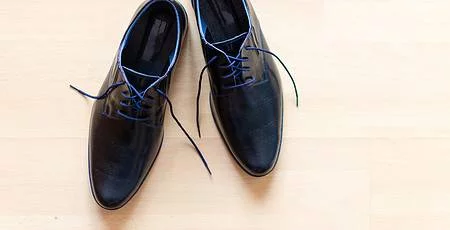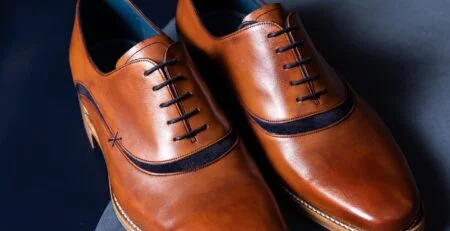Feminists’ Perspectives on Women’s Obsession with Heights
As a feminist, I believe it is essential to challenge societal norms and perceptions that dictate how women should feel about their height. In this blog, I will explore the various viewpoints within the feminist movement regarding women’s obsession with heights and how it intersects with issues of body image, self-worth, and empowerment.
Introduction to Height Obsession
As a woman, the pressures and societal expectations placed on physical appearance can often feel overwhelming. One aspect of this that is particularly pronounced is the obsession with height. In this blog post, we will delve into the cultural significance attached to height for women and explore how this obsession can deeply impact self-esteem.
Exploring the Cultural Significance Placed on Height for Women
Height has long been associated with notions of femininity and beauty in many cultures around the world. Taller women are often viewed as more attractive, graceful, and even commanding. This cultural stereotype can be traced back through history, with tall women such as models and beauty pageant queens often being idolized and held up as the epitome of beauty.
Media representations further perpetuate these ideals, with tall women frequently portrayed as glamorous and desirable. Magazines, advertisements, and movies often feature tall female celebrities as the embodiment of elegance and sophistication. This constant bombardment of images can create an unrealistic standard for women to aspire to, leading to feelings of inadequacy among those who do not meet the height criteria.
- Height and Success: In addition to beauty standards, height is also linked to perceptions of success and authority. Taller individuals, including women, are often seen as more confident and capable in leadership roles. This bias can impact women’s career opportunities and advancement prospects, further reinforcing the importance placed on height.
- Cultural Expectations: Some cultures place a particularly high value on height for women, associating it with fertility, strength, and even social status. In these societies, shorter women may face discrimination or challenges in various aspects of their lives, from dating prospects to job opportunities.
Discussing How Height Obsession Can Impact Women’s Self-Esteem
The relentless emphasis on height can have a profound effect on women’s self-esteem and mental well-being. Constant comparisons to taller women, whether in real life or through media representations, can lead to feelings of inadequacy and low self-worth. This can manifest in various ways, including body image issues, lack of confidence, and even anxiety in social situations.
For many women, the pressure to conform to these beauty standards can be overwhelming and detrimental to their overall sense of self. This obsession with height can also contribute to feelings of insecurity and self-doubt, shaping how women perceive themselves and their place in the world.
“It’s essential to recognize that beauty comes in all shapes and sizes, and height should not define a woman’s worth or value.”
At Attix Shoes, we believe in celebrating diversity and empowering women to embrace their unique attributes, regardless of societal expectations. Visit our website to explore a wide range of stylish and comfortable footwear options designed to make every woman feel confident and beautiful, no matter her height.
Societal Expectations and Women’s Height
When it comes to women’s height and societal expectations, there is a complex interplay between how we perceive ourselves and how society dictates beauty standards. Analyzing the influence of societal norms on women’s perceptions of their height reveals an interesting dynamic.
- Height Perception: The way women view their own height is often shaped by external influences. Media representations, fashion industry ideals, and cultural stereotypes play a significant role in determining what is considered attractive or desirable. Women may feel pressure to conform to a certain height ideal, which can impact their self-esteem and body image.
- Beauty Standards: The pressure on women to adhere to specific beauty standards related to height can be overwhelming. Tallness is often associated with power, beauty, and desirability, while shorter women may feel marginalized or overlooked. This emphasis on height can lead to feelings of inadequacy and insecurity among women who do not meet the perceived ideal.
At Attix Shoes, we believe in celebrating diversity and empowering women to embrace their unique qualities, including their height. It’s essential to challenge societal norms that dictate unrealistic beauty standards and promote a more inclusive and accepting environment for women of all shapes and sizes.
Feminist Critique of Height Fixation
As a feminist, I believe it is essential to shed light on the prevailing issue of height fixation and how it intersects with the objectification of women. Our society often places a disproportionate emphasis on height, especially on how it pertains to women. This fixation can lead to harmful stereotypes, unrealistic beauty standards, and discrimination based on physical appearance.
Objectification of Women Based on Height
One of the core feminist perspectives on height fixation is the objectification of women solely based on their stature. Women are often judged and valued according to their height, with taller women being seen as more attractive, powerful, and successful, while shorter women may face prejudice or discrimination. This narrow-minded perception reinforces gender stereotypes and diminishes the complexity and diversity of women’s identities.
Height obsession contributes to the commodification of women’s bodies, reducing them to mere objects of desire or admiration based on physical attributes such as tallness. This objectification perpetuates harmful beauty ideals and reinforces the unrealistic standards that many women feel pressured to meet in order to be accepted or valued in society.

Intersectionality of Height Obsession with Other Forms of Discrimination
It is crucial to recognize the intersectionality of height obsession with other forms of discrimination, such as misogyny, ageism, and ableism. Women who do not conform to society’s narrow definition of an ideal height may face additional marginalization and bias, compounding the challenges they already encounter due to their gender.
Height discrimination can have tangible consequences in various aspects of a woman’s life, including education, employment opportunities, and social interactions. Taller individuals are often perceived as more authoritative or competent, leading to potential biases in hiring practices or leadership roles. This disparity highlights the systemic inequality that stems from height fixation and its impact on women’s advancement and empowerment.
As feminists, it is crucial to challenge these ingrained prejudices and advocate for a more inclusive and diverse representation of women in all spheres of society. By dismantling height obsession and promoting acceptance of all body types, we can create a more equitable and empowering environment for women to thrive and express their true selves.
Empowerment Through Self-Acceptance
As a feminist, I am constantly inspired by the ways in which feminists encourage women to embrace all aspects of their identity, including their height. Height is often a topic of obsession for women in society, with unrealistic beauty standards dictating that taller is better. However, feminists challenge this narrative and advocate for self-acceptance regardless of height.
One of the key aspects of feminist discourse is the promotion of body positivity and self-acceptance. This includes embracing one’s height as a fundamental part of who they are. Instead of conforming to societal norms that suggest a certain height is more desirable, feminists celebrate diversity and emphasize that beauty comes in all shapes and sizes.
Through their advocacy, feminists aim to empower women to feel confident and comfortable in their own skin. This empowerment extends beyond just physical appearance and encourages women to embrace their unique traits, including their height. By embracing all aspects of themselves, women can assert their identity and challenge societal expectations.
Attix Shoes, a leading brand in empowering women through self-acceptance, offers a range of stylish and comfortable shoes for women of all heights. Check out their collection at attixshoes.com to find the perfect pair that makes you feel confident and empowered.
Challenging Beauty Standards
Beauty standards have long been a subject of discussion and debate within feminist circles. As a feminist, my perspective is rooted in the belief that all individuals, regardless of their physical attributes, should feel confident and empowered in their own skin. In this blog post, I delve into the advocacy for diverse representations of beauty beyond height and the detrimental impact of height stereotypes perpetuated by the media on women.
Advocating for Diverse Beauty Representations
One of the key viewpoints held by feminists is the importance of challenging narrow beauty standards that tend to prioritize certain physical traits over others. While society often places a strong emphasis on height as a marker of physical attractiveness, feminists advocate for a more inclusive definition of beauty that celebrates diversity in all its forms.
By promoting diverse beauty representations, feminists aim to create a more inclusive and accepting environment where individuals of all heights, shapes, and sizes can feel valued and appreciated. This advocacy extends beyond height to encompass a wide range of physical attributes, including skin color, body shape, and facial features.
The Role of Media in Perpetuating Height Stereotypes
The media plays a significant role in shaping societal perceptions of beauty and perpetuating height stereotypes. From fashion magazines to Hollywood films, the representation of tall women as the epitome of beauty is often reinforced, sending a damaging message to women of shorter stature.
Height stereotypes portrayed in the media can lead to feelings of inadequacy and low self-esteem among women who do not fit the traditional mold of tall, slender beauty. This can have lasting effects on mental health and contribute to a culture of body shaming and comparison.
Impact on Women
The impact of height stereotypes on women is far-reaching and complex. Women who do not conform to societal ideals of height may experience feelings of insecurity and self-doubt, internalizing the belief that they are somehow less attractive or worthy because of their height.
By challenging these stereotypes and advocating for diverse representations of beauty, feminists strive to create a more inclusive and empowering environment for all women. Embracing diversity in beauty not only celebrates individuality but also promotes self-acceptance and body positivity among women of all shapes and sizes.
TL;DR
Feminists advocate for diverse beauty representations beyond height, challenging societal norms perpetuated by the media. By promoting inclusivity and acceptance, feminists aim to empower women to embrace their unique beauty and reject harmful stereotypes.



